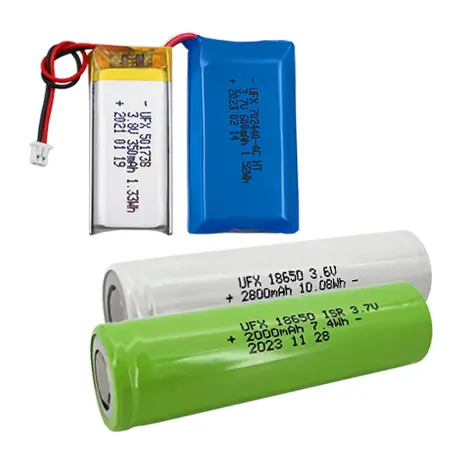Power tools have revolutionized various industries and home improvement sectors, offering speed, efficiency, and precision. In recent years, the technology behind power tools has seen significant advancements, with one of the most notable improvements being the shift from traditional nickel-cadmium (NiCd) batteries to lithium-ion (Li-ion) batteries. This transition has had a profound impact on the performance, reliability, and overall user experience of power tools.
In this article, we will explore the benefits of lithium batteries in power tools, compare them to older battery technologies, and evaluate their performance in real-world applications.
The Role of Batteries in Power Tools
Before diving into the specifics of lithium-ion batteries, it’s important to understand the role that batteries play in power tools. The battery is the power source for cordless tools, providing the electrical energy necessary to operate motors, lights, and other components. For professionals and DIY enthusiasts, the type of battery used can significantly influence the tool’s performance, ease of use, and longevity.
Traditionally, power tools were powered by NiCd (Nickel-Cadmium) batteries or nickel-metal hydride (NiMH) batteries. While these batteries were widely used for many years, they have several limitations, such as shorter runtime, lower energy density, and the “memory effect,” which reduces the battery’s capacity over time. These issues are largely addressed by the introduction of lithium-ion batteries, which offer a host of advantages that can enhance the performance of power tools.

Key Advantages of Lithium-Ion Batteries in Power Tools
Lithium-ion batteries offer several key benefits over older battery technologies. Below are the primary advantages that make them the ideal choice for modern power tools:
- Higher Energy Density
One of the most significant advantages of lithium-ion batteries is their high energy density, which means they can store more energy in a smaller, lighter package. This leads to more compact and lighter tools, which is a major benefit for users who need to operate power tools for extended periods. Tools powered by lithium-ion batteries are easier to handle, reducing operator fatigue and enhancing comfort.
- Longer Run Time
Lithium-ion batteries generally have a longer runtime than NiCd or NiMH batteries. This is because they are able to provide more consistent power throughout their discharge cycle, unlike older batteries that tend to lose power more rapidly as they near the end of their charge. With lithium-ion batteries, users can expect to get more work done between charges, which is especially important in professional settings where downtime can lead to productivity losses.
- Faster Charging Time
Lithium-ion batteries charge faster than their NiCd or NiMH counterparts. While older battery types could take several hours to recharge, lithium-ion batteries often require less than one hour to reach a full charge, significantly reducing the time between tool use. This feature is especially beneficial for professionals who need to use their power tools continuously throughout the day. Quick charging helps maximize tool uptime, increasing overall efficiency.
- No Memory Effect
Unlike NiCd batteries, which suffer from the “memory effect” (where the battery “remembers” its partial charge and thus loses capacity if recharged before fully drained), lithium-ion batteries do not suffer from this issue. This means users can recharge their lithium-ion batteries at any time without worrying about degrading the battery’s capacity. The ability to recharge lithium-ion batteries at various intervals extends their lifespan and ensures that they retain their full capacity over time.
- Lightweight and Compact Design
Lithium-ion batteries are generally much lighter than NiCd or NiMH batteries of equivalent power. This allows manufacturers to design power tools that are smaller, more ergonomic, and easier to handle without sacrificing power. For professionals who rely on tools for extended periods, the reduced weight of lithium-ion-powered tools can significantly improve comfort and reduce strain on the hands, wrists, and arms.
- Enhanced Durability and Safety
Lithium-ion batteries tend to be more durable and safer than their predecessors. They are less prone to leakage or catastrophic failure (e.g., bursting or catching fire) compared to NiCd or NiMH batteries. Additionally, modern lithium-ion power tools often include integrated battery management systems (BMS), which monitor the battery’s performance and ensure safe charging and discharging, preventing overheating and overcharging.
Performance Comparison: Lithium-Ion vs. NiCd and NiMH Batteries
To understand the performance difference between lithium-ion and older battery technologies, let’s compare them in key areas:
- Energy Density
- Lithium-ion: Higher energy density, which means more power is stored in a smaller, lighter battery. This results in longer run times and smaller tool designs.
- NiCd: Lower energy density. NiCd batteries are bulkier and provide less energy over the same size, leading to heavier tools and shorter run times.
- NiMH: Slightly better than NiCd in energy density but still not on par with lithium-ion. NiMH batteries are heavier than lithium-ion and still provide shorter run times.
Verdict: Lithium-ion batteries have the edge due to their superior energy density, allowing for longer tool runtimes and more compact, lighter designs.
- Run Time and Efficiency
- Lithium-ion: Lithium-ion batteries provide more consistent power throughout their discharge cycle. The tool operates at its peak efficiency for a longer time compared to NiCd or NiMH tools.
- NiCd: As NiCd batteries discharge, their power output decreases significantly, meaning the tool may lose effectiveness before the battery is fully drained.
- NiMH: Similar to NiCd, NiMH batteries also experience a decline in power as they discharge. However, they tend to maintain a more stable output compared to NiCd.
Verdict: Lithium-ion batteries outperform both NiCd and NiMH batteries in terms of maintaining consistent power and longer run times.
- Charging Time
- Lithium-ion: Much faster charging times, typically within 30 to 60 minutes.
- NiCd: Takes longer to charge (typically 1.5 to 3 hours).
- NiMH: Also has a slower charging time compared to lithium-ion (1.5 to 2 hours).
Verdict: Lithium-ion batteries charge the fastest, making them ideal for users who need quick turnaround times between uses.
- Weight and Size
- Lithium-ion: Significantly lighter and more compact, which translates to easier handling and less fatigue.
- NiCd: Bulky and heavy, making tools harder to handle for extended periods.
- NiMH: More compact than NiCd but still bulkier and heavier than lithium-ion.
Verdict: Lithium-ion batteries provide the lightest and most ergonomic design, reducing operator fatigue.
- Battery Life and Durability
- Lithium-ion: Longer lifespan and more durable, with better resistance to wear and tear. The battery can last for years with proper care, and it doesn’t suffer from the memory effect.
- NiCd: Shorter lifespan, especially if not properly maintained, and suffers from the memory effect.
- NiMH: Longer lifespan than NiCd but shorter than lithium-ion. It also doesn’t suffer from the memory effect, but it can degrade over time if not managed properly.
Verdict: Lithium-ion batteries have the longest lifespan and require less maintenance, providing a better long-term investment.
Conclusion
The transition from NiCd and NiMH batteries to lithium-ion batteries in power tools has been a game-changer. Lithium-ion technology has significantly enhanced the performance, efficiency, and user experience of cordless power tools. From longer run times and faster charging to lighter, more compact designs, lithium-ion batteries offer a clear advantage over older battery technologies.
For professionals and DIY enthusiasts alike, tools powered by lithium-ion batteries offer greater convenience, reduced downtime, and improved overall performance, making them the preferred choice in today’s competitive market. Whether you’re working on a construction site, completing a home renovation, or performing maintenance tasks, lithium-ion-powered tools are undoubtedly the future of the power tool industry.

